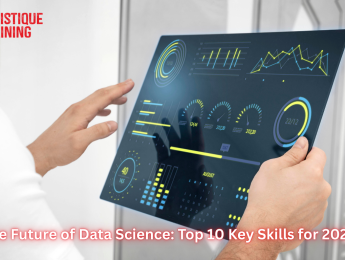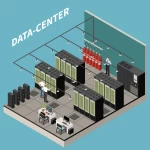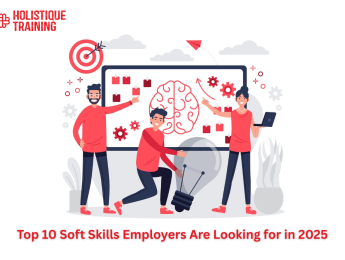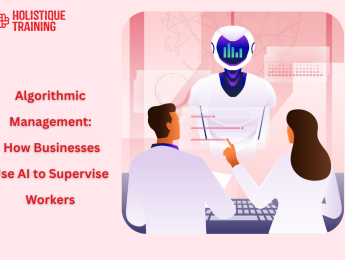- Table of Contents
- Introduction
- What is Data Science?
- Why is Data Science Important?
- Enhancing Decision Making
- Driving Innovation
- Personalizing Customer Experiences
- Optimizing Operations
- Risk Management and Fraud Detection
- Advancing Healthcare
- Informing Public Policy
- Facilitating Big Data Management
- Roles and Responsibilities of a Data Scientist
- Data Collection and Cleaning
- Data Analysis and Interpretation
- Data Visualization
- Model Building
- Collaboration with Stakeholders
- Continuous Learning
- Ethical Considerations
- Experimentation and Innovation
- Documentation and Reporting
- Problem Solving
- Top Data Scientist Technical Skills
- Python and R Skills
- Statistics and Math
- SQL and NoSQL
- Data Visualization
- Machine Learning and AI
- Natural Language Processing (NLP)
- Deep Learning
- Big Data Technologies
- Cloud Computing
- Top Data Scientist Soft Skills
- Data Ethics
- Business Acumen
- Analytical Thinking
- Communication Skills
- Collaboration
- Problem Solving
- Continuous Learning
- How to Develop a Data Scientist Skill Set
- Formal Education
- Practical Experience
- Continuous Learning
- Skill Development Strategies
- Soft Skill Enhancement
- Mentorship and Guidance
- Conclusion
Introduction
The realm of data science has emerged as a cornerstone of innovation and strategic decision-making in various industries. From healthcare to finance, retail to technology, the influence of data science is omnipresent, guiding organizations in making informed decisions and predicting future trends. This blog post delves into the intricate world of data science, exploring its significance, the pivotal roles of data scientists, and the essential skills required to thrive in this dynamic field. Whether you're an aspiring data scientist or a seasoned professional looking to hone your skills, this comprehensive guide will illuminate the path to mastering the art and science of data.
What is Data Science?
Data science is a multidisciplinary field that combines statistical analysis, computer science, and domain expertise to extract meaningful insights from structured and unstructured data. It involves various processes, including data collection, cleaning, analysis, and visualization, to uncover patterns and make data-driven decisions. The ultimate goal of data science is to transform raw data into actionable insights that can drive business strategies and innovations.
At its core, data science is about understanding and interpreting data to solve complex problems. This involves not just technical skills, but also a deep understanding of the context in which data exists. Data scientists use a variety of tools and techniques to analyze data, ranging from simple statistical tests to complex machine learning algorithms.
Table: Comparing Data Science and Computer Science
Aspect | Data Science | Computer Science |
Focus | Extracting insights and knowledge from data. | Theoretical foundations and practical applications of computation. |
Key Skills | Statistics, machine learning, data visualization, and domain-specific knowledge. | Programming, algorithms, data structures, and software development. |
Tools | Python, R, SQL, Hadoop, Spark, Tableau. | Java, C++, Python, Git, IDEs, operating systems. |
Applications | Business analytics, predictive modeling, data mining, and AI applications. | Software development, system architecture, network design, and cybersecurity. |
Outcome | Actionable insights and data-driven decision-making. | Efficient algorithms, software solutions, and computational systems. |
Why is Data Science Important?
Data science is a transformative force in the modern world, reshaping industries and driving innovation across sectors. Its importance stems from the ability to harness vast amounts of data to derive actionable insights that can significantly impact business strategies, operational efficiencies, and customer experiences. Here's a closer look at why data science is indispensable:
Enhancing Decision Making
Data science empowers organizations to make informed decisions based on empirical evidence rather than intuition or guesswork. By analyzing historical data and identifying trends, companies can predict future outcomes and make strategic decisions that align with their objectives. This data-driven approach reduces uncertainty and enhances the precision of decision-making processes, leading to more successful outcomes.
Driving Innovation
In a rapidly evolving technological landscape, innovation is key to staying competitive. Data science fuels innovation by uncovering new opportunities and insights that were previously hidden in complex datasets. For instance, companies can use data analytics to identify emerging market trends, develop new products, or optimize existing offerings. This proactive approach to innovation helps businesses stay ahead of the curve and meet evolving customer needs.
Personalizing Customer Experiences
Today's consumers expect personalized experiences tailored to their preferences and behaviors. Data science enables companies to deliver such experiences by analyzing customer data to understand individual preferences, purchase histories, and interactions. This insight allows businesses to create targeted marketing campaigns, recommend products, and enhance customer satisfaction, ultimately driving loyalty and retention.
Optimizing Operations
Operational efficiency is critical for maximizing profitability and competitiveness. Data science plays a crucial role in optimizing operations by analyzing data related to supply chains, production processes, and resource allocation. By identifying inefficiencies and predicting demand patterns, businesses can streamline operations, reduce costs, and improve productivity.
Risk Management and Fraud Detection
In sectors like finance and insurance, managing risk and detecting fraud are paramount. Data science provides tools and techniques to assess risks accurately and identify fraudulent activities. By analyzing transaction patterns and customer behaviors, companies can develop algorithms to detect anomalies and prevent fraud before it occurs, safeguarding assets and enhancing security.
Advancing Healthcare
The healthcare industry benefits immensely from data science through improved patient care and medical research. Predictive analytics can identify potential health risks and suggest preventive measures, while machine learning algorithms can assist in diagnosing diseases and personalizing treatment plans. Data science also accelerates drug discovery and clinical trials, contributing to faster and more effective healthcare solutions.
Informing Public Policy
Governments and public organizations use data science to inform policy decisions and improve public services. By analyzing demographic data, economic indicators, and social trends, policymakers can address societal challenges, allocate resources efficiently, and implement programs that enhance the quality of life for citizens.
Facilitating Big Data Management
With the exponential growth of data, managing and processing large datasets is a significant challenge. The global big data market is projected to reach $273.4 billion by 2026, more than twice its estimated size in 2018, highlighting the increasing importance of effective data management. Data science provides the methodologies and tools necessary to handle big data efficiently, enabling organizations to extract valuable insights without being overwhelmed by data volume. Technologies like Hadoop and Spark facilitate the storage, processing, and analysis of big data, ensuring organizations can leverage their data assets effectively.
In summary, data science is vital for transforming raw data into strategic assets that drive business success and societal advancement. Its applications are vast and varied, offering solutions to complex problems and opening new avenues for growth and innovation. As data continues to proliferate, the importance of data science will only increase, solidifying its role as a cornerstone of modern decision-making and technological progress.
Roles and Responsibilities of a Data Scientist
A data scientist's role is multifaceted, requiring a blend of technical expertise, analytical skills, and business acumen. Key responsibilities include:
Data Collection and Cleaning
One of the fundamental responsibilities of a data scientist is to gather data from various sources. This involves identifying relevant data sets, extracting data from databases, APIs, or external sources, and ensuring its accuracy and completeness. Once collected, data must be cleaned and preprocessed to remove inconsistencies, errors, and missing values. This step is crucial for ensuring the reliability of subsequent analyses and models.
Data Analysis and Interpretation
Data scientists employ statistical methods and algorithms to analyze data, uncover patterns, and extract meaningful insights. This involves using techniques such as regression analysis, clustering, and hypothesis testing to explore data and validate assumptions. The ability to interpret results accurately is essential, as it forms the basis for making data-driven recommendations and decisions.
Data Visualization
Communicating complex data insights effectively is a key responsibility of a data scientist. They use visualization tools like Tableau, Power BI, and Matplotlib to create interactive and intuitive charts, graphs, and dashboards. These visualizations help stakeholders understand data trends and findings, facilitating informed decision-making across the organization.
Model Building
Data scientists develop predictive models using machine learning techniques to forecast future trends and behaviors. This involves selecting appropriate algorithms, training models on historical data, and tuning parameters to optimize performance. Models can range from simple linear regressions to complex neural networks, depending on the problem at hand. Evaluating model accuracy and robustness is crucial to ensure reliable predictions.
Collaboration with Stakeholders
Effective collaboration with business leaders and stakeholders is vital for aligning data science projects with organizational goals. Data scientists must understand the business context, identify key challenges, and translate them into data-driven solutions. This requires strong communication skills to convey technical insights in a manner that is accessible to non-technical audiences.
Continuous Learning
The field of data science is constantly evolving, with new tools, techniques, and methodologies emerging regularly. Data scientists must stay updated with the latest advancements to maintain their expertise and adapt to changing industry demands. This involves continuous learning through professional development, attending conferences, and engaging with the data science community.
Ethical Considerations
Data scientists must navigate ethical considerations related to data privacy, security, and bias. Ensuring compliance with regulations like GDPR and maintaining transparency in data usage are critical responsibilities. Ethical data practices foster trust and credibility, both internally and externally.
Experimentation and Innovation
Data scientists often engage in experimentation to test hypotheses and explore new approaches to data analysis. This involves designing experiments, conducting A/B tests, and iterating on models to improve outcomes. Innovation is encouraged, as it can lead to breakthroughs and novel solutions that enhance business processes and strategies.
Documentation and Reporting
Thorough documentation of data processes, methodologies, and findings is essential for reproducibility and knowledge sharing. Data scientists must prepare detailed reports that outline their analyses, methodologies, and conclusions. These reports serve as valuable resources for future projects and facilitate collaboration within teams.
Problem Solving
Data scientists are natural problem solvers, tasked with identifying complex business challenges and developing data-driven solutions. This requires creativity, critical thinking, and a methodical approach to dissecting problems and devising strategies that leverage data effectively.
In summary, the roles and responsibilities of a data scientist are diverse and integral to the success of data-driven initiatives. By combining technical skills with strategic thinking and effective communication, data scientists play a pivotal role in transforming data into actionable insights that drive innovation and competitive advantage.
Table: Key Performance Indicators (KPIs) of a Data Scientist
Key Performance Indicator | Description |
Model Accuracy | Measures how accurately the data models predict outcomes or classify data |
Data Quality Improvement | Assesses the enhancement of data integrity and accuracy through cleansing efforts |
Insight Generation | Evaluates the ability to derive actionable insights from data analysis |
Project Delivery Timeliness | Tracks adherence to project timelines and deadlines |
Stakeholder Satisfaction | Gauges the satisfaction level of stakeholders with the data science outputs |
Top Data Scientist Technical Skills
To excel in data science, a robust set of technical skills is essential. These skills enable data scientists to manipulate data, build models, and derive insights effectively.
Python and R Skills
Python and R are the most widely used programming languages in data science due to their versatility and strong support for statistical analysis and data manipulation.
- Python: Known for its simplicity and readability, Python is favored for its extensive libraries such as Pandas for data manipulation, NumPy for numerical computations, and Scikit-learn for machine learning. Its versatility allows data scientists to handle everything from data scraping to deep learning, making it a staple in the data science toolkit.
- R: Renowned for its statistical computing capabilities, R is particularly strong in data analysis and visualization. Packages like ggplot2 for visualization and dplyr for data manipulation make R a powerful tool for statistical modeling and exploratory data analysis. R is often used in academia and research environments where statistical rigor is paramount.
Statistics and Math
A solid foundation in statistics and mathematics is crucial for data scientists to perform effective data analysis and model building.
- Descriptive Statistics: Understanding measures of central tendency, dispersion, and distribution is essential for summarizing and interpreting data.
- Inferential Statistics: Skills in hypothesis testing, ANOVA, and regression analysis enable data scientists to make predictions and validate assumptions.
- Mathematics: Proficiency in linear algebra, calculus, and probability theory is necessary for developing algorithms and understanding the mathematical underpinnings of machine learning models.
SQL and NoSQL
Data scientists must be adept at querying and managing databases, both relational and non-relational.
- SQL (Structured Query Language): Essential for accessing and manipulating data in relational databases, SQL skills are crucial for data extraction, transformation, and loading (ETL) processes. Knowledge of SQL allows data scientists to efficiently query large datasets and perform complex joins and aggregations.
- NoSQL: Familiarity with NoSQL databases like MongoDB and Cassandra is important for handling unstructured data. NoSQL databases offer flexibility in storing diverse data types and are often used in big data applications where scalability is a concern.
Data Visualization
The ability to create compelling visual representations of data is vital for communicating insights effectively.
- Tools: Proficiency in visualization tools such as Tableau, Power BI, and Matplotlib enables data scientists to design interactive dashboards and plots that convey complex information intuitively.
- Techniques: Understanding visualization principles like color theory, chart selection, and storytelling helps data scientists present data in a manner that is both informative and engaging.
Machine Learning and AI
Machine learning and artificial intelligence are at the heart of predictive modeling and automation in data science.
- Algorithms: Knowledge of supervised and unsupervised learning algorithms, such as decision trees, random forests, support vector machines, and clustering techniques, is essential for building models that predict outcomes and classify data.
- Frameworks: Familiarity with machine learning frameworks like TensorFlow, PyTorch, and Scikit-learn allows data scientists to implement and scale models efficiently.
Natural Language Processing (NLP)
NLP skills are crucial for analyzing and interpreting human language data, unlocking insights from text-based sources.
- Techniques: Understanding tokenization, sentiment analysis, named entity recognition, and topic modeling enables data scientists to process and analyze textual data effectively.
- Applications: NLP is used in applications such as chatbots, language translation, and sentiment analysis, enhancing customer interactions and extracting valuable insights from social media and customer feedback.
Deep Learning
Deep learning techniques are pivotal for tasks involving complex data types such as images, audio, and video.
- Neural Networks: Proficiency in designing neural networks, including convolutional neural networks (CNNs) for image processing and recurrent neural networks (RNNs) for sequence data, is essential for tackling advanced machine learning challenges.
- Frameworks: Knowledge of deep learning frameworks like Keras and TensorFlow helps data scientists build and deploy sophisticated models for tasks such as image recognition and natural language processing.
Big Data Technologies
Handling and processing large datasets efficiently is a key aspect of data science.
- Tools: Familiarity with big data technologies like Hadoop and Apache Spark is crucial for managing and analyzing massive datasets. These tools enable distributed computing, enhancing the scalability and speed of data processing.
- Concepts: Understanding concepts such as data lakes, distributed file systems, and parallel processing is important for leveraging big data infrastructure effectively.
Cloud Computing
Cloud computing skills are essential for deploying data science solutions and scaling operations.
- Platforms: Proficiency in cloud platforms like Amazon Web Services (AWS), Microsoft Azure, and Google Cloud Platform (GCP) allows data scientists to leverage cloud resources for data storage, processing, and machine learning model deployment.
- Services: Knowledge of cloud services such as AWS S3 for data storage, Azure Machine Learning for model training, and GCP BigQuery for data analysis enhances the flexibility and scalability of data science projects.
In summary, mastering these technical skills equips data scientists to handle diverse data challenges, develop robust models, and deliver actionable insights. As technology continues to evolve, staying abreast of the latest tools and techniques is crucial for maintaining a competitive edge in the field of data science.
Top Data Scientist Soft Skills
In addition to technical prowess, data scientists must possess a range of soft skills that enable them to work effectively within teams and communicate their findings.
Data Ethics
Understanding and applying ethical principles in data science is vital for maintaining trust and compliance with legal standards.
- Privacy Awareness: Data scientists must be vigilant about data privacy, ensuring that personal information is protected and used responsibly. This involves adhering to regulations like GDPR and implementing best practices for data security.
- Bias and Fairness: Recognizing and mitigating bias in data and algorithms is crucial for ensuring fairness and equity in data-driven decisions. Data scientists must evaluate models for potential bias and strive to create inclusive and unbiased solutions.
- Transparency: Clear communication about data usage and methodologies fosters transparency and trust with stakeholders. Data scientists should be able to explain their processes and decisions in a way that is accessible and understandable.
Business Acumen
A strong understanding of the business context is essential for aligning data science projects with organizational goals.
- Industry Knowledge: Data scientists should be familiar with the industry they work in, understanding its challenges, opportunities, and competitive landscape. This knowledge helps in identifying relevant data-driven solutions that can drive business success.
- Strategic Thinking: The ability to think strategically and translate business objectives into data science initiatives is crucial for maximizing impact. Data scientists must prioritize projects that align with the company's vision and deliver tangible value.
Analytical Thinking
Strong analytical skills are necessary for interpreting data and making data-driven decisions.
- Problem Solving: Data scientists are often tasked with solving complex problems using data. This requires creativity, critical thinking, and a methodical approach to dissecting issues and developing innovative solutions.
- Attention to Detail: Precision and accuracy are paramount in data analysis. Data scientists must pay close attention to detail to ensure data integrity and the reliability of their findings.
Communication Skills
Effective communication is key to conveying complex data insights to non-technical stakeholders.
- Storytelling: Data scientists must be able to tell compelling stories with data, using visualization and narrative techniques to make insights accessible and engaging.
- Presentation Skills: The ability to present findings clearly and confidently is essential for influencing decision-makers. Data scientists should be adept at creating presentations that highlight key insights and recommendations.
- Written Communication: Preparing reports and documentation that outline methodologies and conclusions is important for knowledge sharing and collaboration. Clear and concise writing ensures that insights are understood and actionable.
Collaboration
Working effectively with cross-functional teams requires strong interpersonal skills and collaboration.
- Teamwork: Data scientists often work in teams alongside engineers, analysts, and business leaders. The ability to collaborate and contribute constructively is crucial for achieving collective goals.
- Interpersonal Skills: Building relationships and fostering a positive team environment enhances productivity and innovation. Data scientists should be approachable and open to feedback, facilitating effective communication and collaboration.
Problem Solving
Data scientists must be adept at identifying problems and developing innovative solutions using data.
- Creativity: Innovative thinking is essential for developing novel approaches to data analysis and model building. Data scientists should be open to experimenting with new techniques and tools.
- Adaptability: The ability to adapt to changing circumstances and requirements is important for navigating dynamic business environments. Data scientists should be flexible and willing to adjust their strategies as needed.
Continuous Learning
The field of data science is constantly evolving, requiring a commitment to continuous learning and professional development.
- Curiosity: A natural curiosity and eagerness to learn are important for staying updated with the latest trends and technologies. Data scientists should seek out opportunities for growth and exploration.
- Self-Motivation: The drive to improve and expand one's skill set is essential for maintaining expertise and competitiveness in the field. Data scientists should be proactive in pursuing learning opportunities and challenges.
In summary, soft skills complement technical skills by enabling data scientists to work effectively within teams, communicate insights, and align data science initiatives with business goals. These skills are crucial for navigating the complexities of the field and driving successful outcomes. As the role of data science continues to expand, the importance of soft skills will only grow, underscoring their role in shaping effective and impactful data scientists.
How to Develop a Data Scientist Skill Set
Building a successful career in data science requires continuous learning and skill development. Here are some steps to develop a robust data scientist skill set:
Formal Education
- Degree Programs: Pursuing a degree in fields such as computer science, statistics, mathematics, or data science provides a strong foundational knowledge. These programs typically cover essential topics like algorithms, data structures, statistical analysis, and machine learning.
- Online Courses and Certifications: Platforms like Holistique Training offer specialized courses and certifications in data science and related areas. These courses are often designed by industry experts and provide practical insights into current tools and methodologies.
Practical Experience
- Projects and Internships: Engaging in projects and internships offers hands-on experience with real-world data challenges. This practical exposure helps in applying theoretical knowledge to solve complex problems and develop technical skills.
- Competitions: Participating in data science competitions, such as Kaggle, allows individuals to tackle diverse datasets and problems, fostering creativity and problem-solving skills. These competitions also provide opportunities to learn from peers and gain recognition in the data science community.
Continuous Learning
- Stay Updated: The field of data science is rapidly evolving, with new tools and techniques emerging regularly. Keeping abreast of the latest developments through blogs, podcasts, and industry publications is crucial for maintaining expertise and competitiveness.
- Networking: Joining professional networks and attending conferences can provide valuable insights and opportunities for collaboration. Engaging with the data science community facilitates knowledge sharing and exposure to diverse perspectives.
Skill Development Strategies
- Programming Skills: Regular practice and coding challenges can enhance proficiency in languages like Python and R. Familiarity with libraries and frameworks is crucial for efficient data manipulation and model building.
- Statistical and Mathematical Skills: Deepening understanding of statistical methods and mathematical concepts through advanced courses and practical application is essential for effective data analysis and modeling.
- Data Visualization: Developing skills in visualization tools like Tableau and Matplotlib through projects and tutorials helps communicate insights effectively. Understanding visualization principles enhances the ability to present data intuitively.
- Machine Learning and AI: Experimenting with different algorithms and frameworks can improve understanding and application of machine learning techniques. Building and evaluating models on diverse datasets fosters expertise in predictive modeling.
- Big Data Technologies: Learning to work with big data tools like Hadoop and Spark through online resources and hands-on projects enhances capabilities in handling large datasets and distributed computing.
- Cloud Computing: Familiarizing oneself with cloud platforms such as AWS, Azure, and GCP through certifications and practical projects enables the deployment and scaling of data science solutions.
Soft Skill Enhancement
- Communication Skills: Practicing presentations and writing reports can improve the ability to convey complex insights clearly and confidently. Engaging in storytelling exercises enhances the ability to make data accessible and engaging.
- Collaboration: Working in teams and participating in group projects fosters interpersonal skills and teamwork. Open communication and feedback loops are important for effective collaboration.
- Problem Solving: Tackling diverse data challenges and experimenting with innovative solutions enhances creativity and adaptability. Embracing a mindset of continuous improvement and learning is key to developing robust problem-solving abilities.
Mentorship and Guidance
- Finding Mentors: Seeking mentorship from experienced data scientists can provide valuable guidance and insights. Mentors can offer advice on career paths, skill development, and industry trends.
- Peer Learning: Collaborating with peers and engaging in study groups or forums encourages shared learning and diverse perspectives. Peer interactions can provide support and motivation in skill development journeys.
In short, developing a data scientist skill set requires a proactive approach to learning and growth. By combining formal education, practical experience, continuous learning, and soft skill enhancement, individuals can build a comprehensive skill set that prepares them for success in the dynamic field of data science.
Conclusion
The journey to becoming a proficient data scientist is both challenging and rewarding. As organizations continue to harness the power of data, the demand for skilled data scientists will only grow. By developing a strong foundation in both technical and soft skills, aspiring data scientists can position themselves at the forefront of this exciting field.
To truly excel in data science, understanding data management principles is crucial. Our course, Mastering Data Management: CDMP & DMBOK Essentials, is designed to equip you with the knowledge and skills needed to manage data effectively and strategically. This course covers the Certified Data Management Professional (CDMP) framework and the Data Management Body of Knowledge (DMBOK), providing you with an in-depth understanding of data governance, quality, architecture, and more.
Embrace the opportunities for continuous learning and innovation through our course, and you will be well-equipped to navigate the ever-evolving landscape of data science. Whether you're looking to solidify your foundational skills or advance your career with specialized knowledge in data management, this course offers the tools and insights necessary to thrive in today's data-driven world. Enroll now to take the next step in your data science journey and become a leader in managing and leveraging data for impactful results.
























